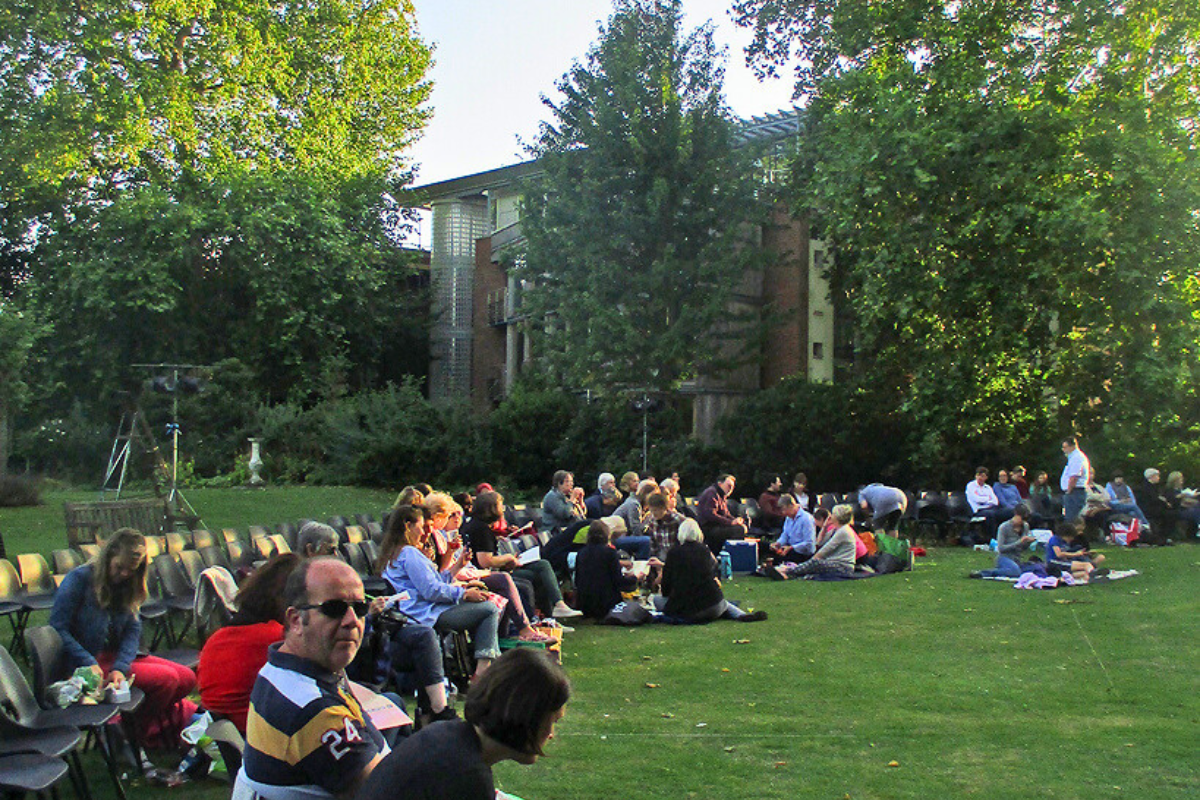
Cambridge Shakespeare Festival compensates its cast with a 'token gesture' of between £50 and £150 a week
Photo: John Sutton
Equity criticises ‘volunteer’ status of Shakespeare festival actors
Equity has called for Cambridge Shakespeare Festival to be 'held accountable' to a 2023 ruling that recognised former cast members as 'workers'.
Performers' union Equity has expressed concern that a theatre festival is continuing to hire actors as volunteers despite an August 2023 ruling that previous cast members should have been considered "workers" due to their high workload.
Running annually for eight weeks over the summer since 1987, the Cambridge Shakespeare Festival stages its ticketed productions within the University of Cambridge grounds, attracting a reported 25,000 visitors annually. The festival provides accommodation and pays performers between £50 and £150 a week, described as a “token gesture” toward “expenses”.
However, in a 2023 ruling against the festival, Judge L Brown found that actors were subject to a “high degree of control” by the operator and Artistic Director, Dr David Crilly, working “extremely long days”, six-day weeks, and being asked to leaflet and take down sets after productions.
READ MORE:
- Music teachers on course to gain workers’ rights
- Theatre company to offer full-time PAYE contracts for actors
Brown’s judgement, which revealed that the festival’s 2021 season had a budget of £250,000, said that although performers were invited to take part “on a purely voluntary basis”, they were, in fact, an "integral part" of the festival and could not accept any other acting work during the period for which they were engaged.
Despite the ruling that previous actors should have been granted "worker" status and were entitled to at least the national minimum wage and other basic employment rights such as holiday pay, minimum rest breaks, and pensions, Equity claims that CSF has continued to engage performers as 'volunteers'.
In a casting call on Facebook earlier this year, reposted on X, Crilly stressed that the roles advertised were unpaid.
"Nobody involved in the festival is paid," he said.
"The reason for this is really simple—we don't have any money (no sponsorship or backing despite strenuous efforts), and the massive production costs are paid in their entirety by the Artistic Director (me)."
"I regularly lose thousands of pounds by putting this on, so please don't post comments about 'slave labour' and 'exploitation'. We provide excellent accommodation throughout and a token gesture to offset expenses (in reality, a bit of beer money)."
He added: "Although unpaid, our standards are entirely professional."
'Exploitative business model'
Equity said that following last year's ruling "reaffirming that performers are generally ‘workers’ in law", Cambridge Shakespeare Festival "must be held accountable".
"This means [actors] are entitled to basic employment rights that cannot be circumvented by an engager’s attempts to cast them as ‘volunteers’ or ‘self-employed’ through bogus contracts and statements," the union said.
"Members currently engaged by the festival are encouraged to get in touch with the union for support in asserting their employment rights."
One of the Equity member claimants, Kit McGuire, stopped working for CSF during the 2022 season due to the working conditions and pay, stating that they thought it amounted to an “exploitative business model”.
Meanwhile, the other claimant, Elizabeth Graham, was dismissed and replaced during the season when Crilly took issue with her informing the Director – rather than himself – that she had caught Covid and accused her of not helping to strike set and props following the performances.
“Of course, bringing a case like this is the last thing you want to do,” said Graham.
“Thankfully, we arrived at a good outcome, which I hope will also be of help to other performing arts workers. The protections afforded by worker status are essential for all workers.”
Worker status
Equity said it is fighting to raise awareness of how frequently employers misclassify performers and stage management as self-employed instead of giving them ‘worker’ status.
Under the law, performers and stage management have a ‘dual status’, categorised as ‘workers’ for employment law purposes and ‘self-employed’ for tax and National Insurance purposes.
The union says most performers and stage management will fall into the intermediate category of ‘limb’ workers, in between employee and genuinely self-employed, as they do not have the regularity of work that characterises an employee relationship but still are contracted to do work personally as part of someone else’s business.
Equity warns that the implications of last year's ruling mean producers and engagers may often mistakenly believe a role is ‘voluntary’ and suggests that student productions may be acting unlawfully if they seek professionals to work for free.
Arts Professional has contacted the Cambridge Shakespeare Festival for comment.
Join the Discussion
You must be logged in to post a comment.